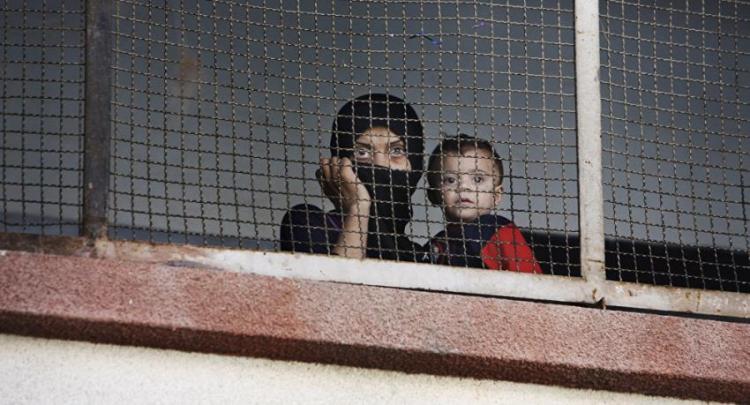Damascus – North-Press Agency
Safa'a Amer
According to a UN-Women report, violence against women and girls constitutes a serious violation of human rights, World Health Organization (WHO) estimated that, 37% of women who have ever had a partner in the eastern Mediterranean have been subjected to physical or sexual violence from their life partners at some point in their lives.
Other forms of violence prevail in the region, including “honor killing, forced and temporary marriages, sexual harassment in public; and harmful practices such as female genital mutilation.”
With the beginning of the wars and crises in the region, violence against women, including Syrian women has reached tougher levels than ever before, where killing, displacement, loss and other terms aren't enough to describe what Syrian women suffer from. There are many stories which can be told about a body offered for its survival, and women living in horror under the siege of customs, and their dignity lying in the pockets of their men.
Khawla, is one of those women mentioned above, who narrated her story to North-Press, by saying "I lived in an orphanage, no father and mother. At the age of 15, I met a young man to whom I got married, a month after our marriage, I got pregnant with my first child.” Khawla said that, two months after the marriage, the young man began to change, and he began to beat and insult her by the most dirty words, saying: "He used to beat me in a crazy way without any justification. I was very patient, until the day I was born with my child.”
Khawla added that her husband was absent for long periods, and one day he called her saying: "I no longer want you as a wife, and I will immediately divorce you whenever I come back.” Khawla commented that her husband and family refused to give her a child who was only months old, and said that out of love and affection, she kept in touch with her husband before the divorce took place in the court, in the hope that he would change.
After less than a month, the divorce took place and the husband received the custody of the child, while Khawla went back again to the orphanage. The young woman’s story didn't end with her divorce and her salvation from the violence of her husband, as another communal violence started because she is considered as a divorced woman, she added: "I decided to go out of the orphanage to work and earn money to live, I started working for a ten-hour restaurant with very little payment.”
"Then I got to know a doctor and his wife in the restaurant and told them my story. They offered me to work as a housekeeper for an old woman where I got a good wage and shelter without any exploitation, especially after a period of staying with one of my friends where I was harassed then by her husband,” she said.
Khawla believes that, her story is difficult and long, but she will endure and be patient for her son in order to regain him. “Survival doesn't mean survival of humanity, there are kinds of death, the most tormenting is when a person is still alive while dead,” she concluded.

